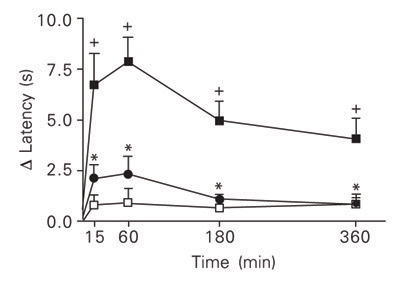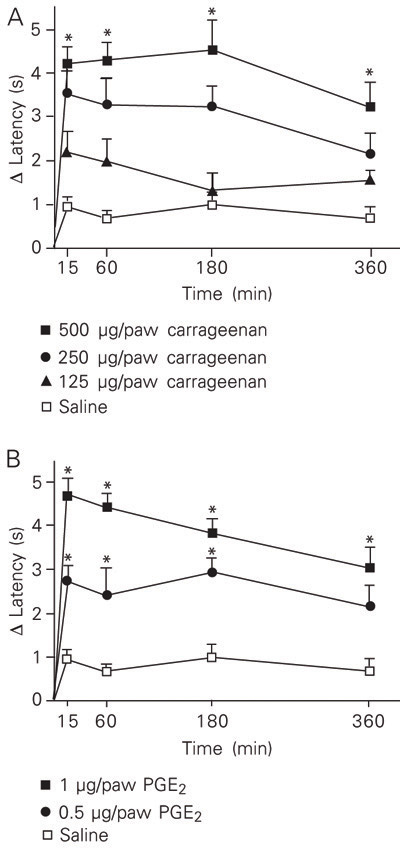It is widely accepted that the classical constant-temperature hot-plate test is insensitive to cyclooxygenase inhibitors. In the current study, we developed a variant of the hot-plate test procedure (modified hot-plate (MHP) test) to measure inflammatory nociception in freely moving rats and mice. Following left and right hind paw stimulation with a phlogogen and vehicle, respectively, the animals were placed individually on a hot-plate surface at 51ºC and the withdrawal latency for each paw was determined simultaneously in measurements performed at 15, 60, 180, and 360 min post-challenge. Plantar stimulation of rats (250 and 500 µg/paw) and mice (125-500 µg/paw) with carrageenan led to a rapid hyperalgesic response of the ipsilateral paw that reached a plateau from 15 to 360 min after challenge. Pretreatment with indomethacin (4 mg/kg, ip) inhibited the phenomenon at all the times analyzed. Similarly, plantar stimulation of rats and mice with prostaglandin E2 (0.5 and 1 µg/paw) also resulted in rapid hyperalgesia which was first detected 15 min post-challenge. Finally, we observed that the MHP test was more sensitive than the classical Hargreaves' test, being able to detect about 4- and 10-fold lower doses of prostaglandin E2 and carrageenan, respectively. In conclusion, the MHP test is a simple and sensitive method for detecting peripheral hyperalgesia and analgesia in rats and mice. This test represents a low-cost alternative for the study of inflammatory pain in freely moving animals.
Hyperalgesia; Hargreaves' test; Modified hot-plate test; Carrageenan; Prostaglandin E2; Indomethacin




